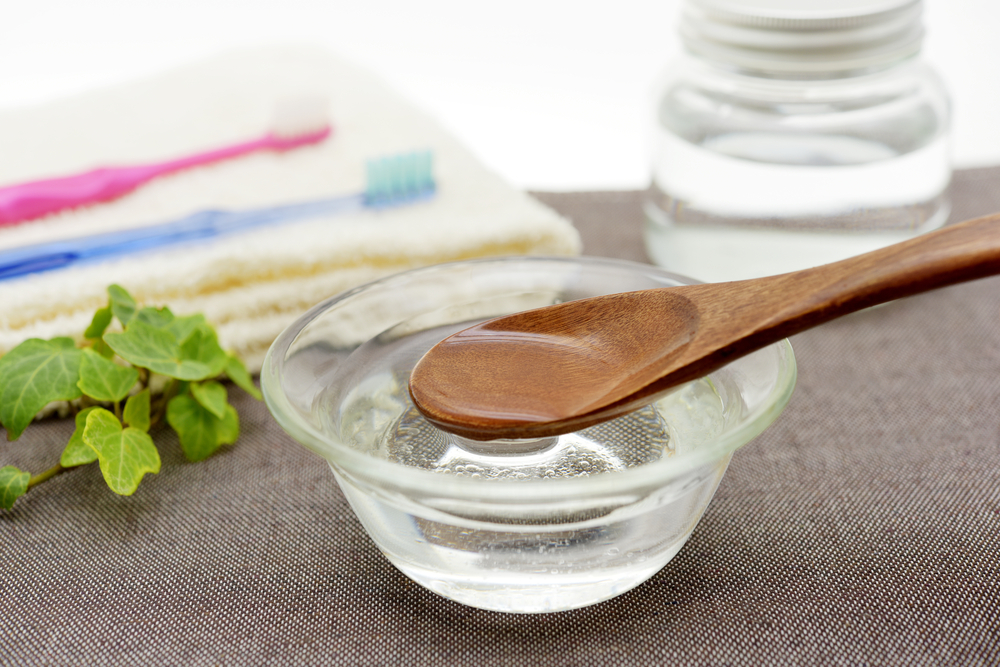Insights on Oil Pulling for Oral Hygiene

Oil pulling is a holistic and natural practice originating from Ayurvedic medicine. It involves swishing a natural oil in the mouth to promote oral health. It is believed to remove toxins and improve dental hygiene.
Ashraf Dentistry shares, “While oil pulling has historical roots and some anecdotal support, it’s essential to approach it with a balanced perspective. Instead, consider it a supplementary activity that might enhance oral cleanliness.” (Source: Healthline, Oil Pulling With Coconut Oil Can Transform Your Dental Health, medically reviewed by Christine Frank, DDS, written by Kris Gunnars, BSc, January 2, 2024, https://www.healthline.com/nutrition/oil-pulling-coconut-oil#basics ).
Benefits of Oil Pulling
Proponents of oil pulling claim it can reduce harmful bacteria in the mouth, decrease plaque, and improve overall oral health.
Ashraf Dentistry shares, “Reducing harmful bacteria is crucial for maintaining a healthy smile. Oil pulling might assist in this regard, but it’s vital to recognize that its effectiveness isn’t universally supported. Consistent dental care, including regular visits to your dentist, remains the cornerstone of effective oral hygiene.”
How to Perform Oil Pulling
Typically, oil pulling involves swishing a tablespoon of oil (commonly recommended coconut oil) in the mouth for about 15-20 minutes before spitting it out.
Ashraf Dentistry mentions, “For those interested in trying oil pulling, ensure you do not swallow the oil as it will contain bacteria from your mouth. Additionally, limit the duration to avoid potential jaw and muscle discomfort. Remember, this practice should complement, not replace, daily brushing and flossing.”
Potential Risks and Considerations
Some potential risks include oil aspiration, upset stomach, or lipoid pneumonia if oil is accidentally inhaled.
Ashraf Dentistry expresses, “Individuals should be cautious when attempting oil pulling. The risk of aspiration, dry mouth, allergic reactions, or other complications underscores the need for care. Always consult with your dental professional before incorporating new practices into your oral hygiene routine to ensure they are safe and appropriate for your individual health needs.”
Scientific Evidence and Skepticism
There remains a lot of division on the efficacy of oil pulling, with more research needed to substantiate the claims made by its proponents.
Ashraf Dentistry comments, “Scientific scrutiny is vital for validating health practices. Current evidence on oil pulling is inconclusive, and while it may offer some benefits, it should not overshadow proven dental care methods. Prioritize evidence-based practices and maintain regular dental check-ups for optimal oral health.”
Oil pulling can be an interesting addition to your oral hygiene regimen but should not replace standard dental practices. Consult your dentist for personalized advice.
Ashraf Dentistry concludes, “Integrating oil pulling into your routine might provide some benefits, but it is crucial to do so under professional guidance. Traditional oral hygiene methods, backed by scientific research, should remain your primary strategy for maintaining a healthy smile. However, if you are looking to incorporate holistic oral hygiene practices, be sure to let your dental professionals know.”
In summary, embracing natural remedies and solutions can be a valuable addition to any routine. Methods such as oil pulling, using herbal toothpaste, and incorporating foods rich in calcium and antioxidants can enhance your dental health naturally. These approaches have the potential to support healthier teeth and gums. However, it is essential to pair these natural practices with regular dental check-ups and proper brushing and flossing techniques. Contact your dental professional for more information on how to integrate natural solutions into your everyday dental hygiene routine.
